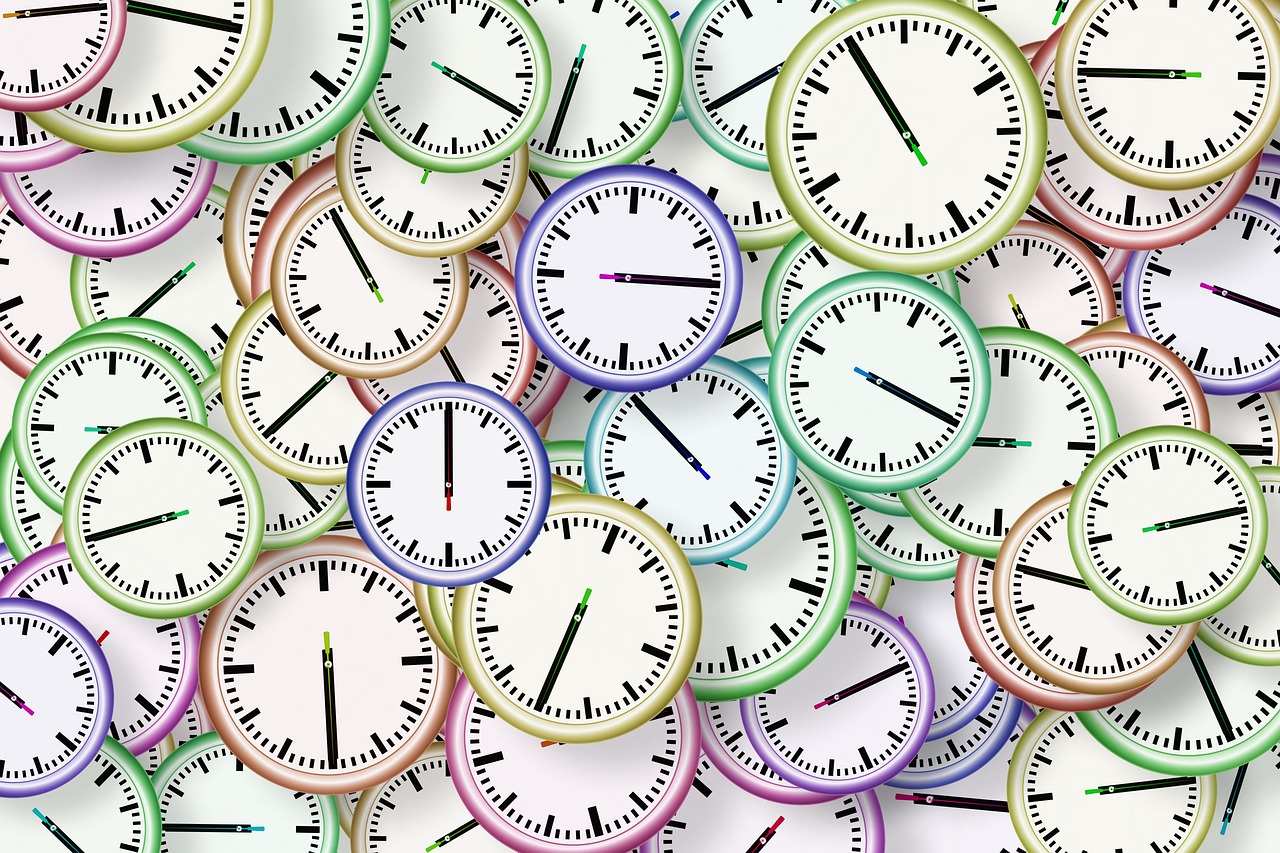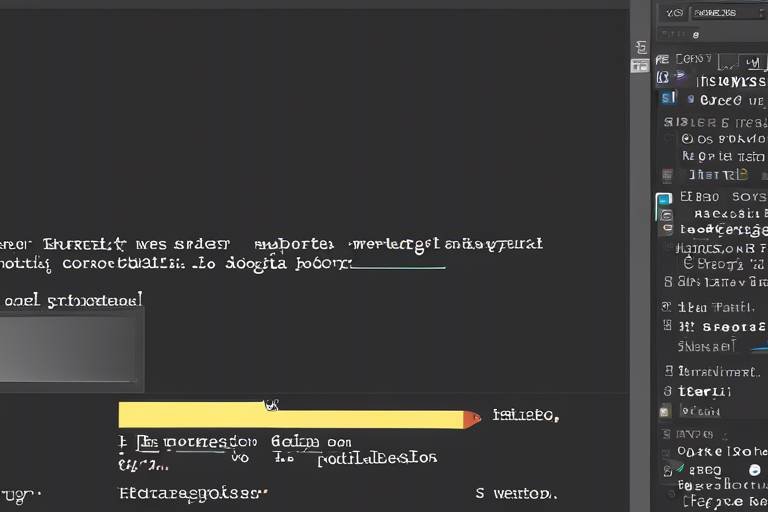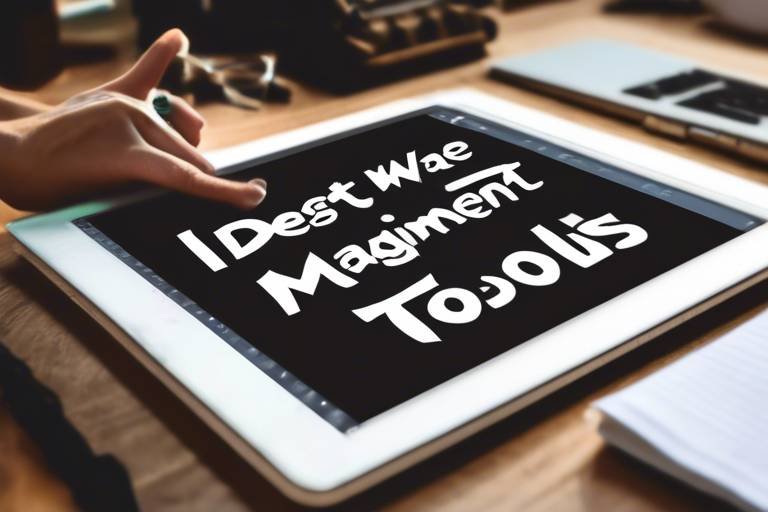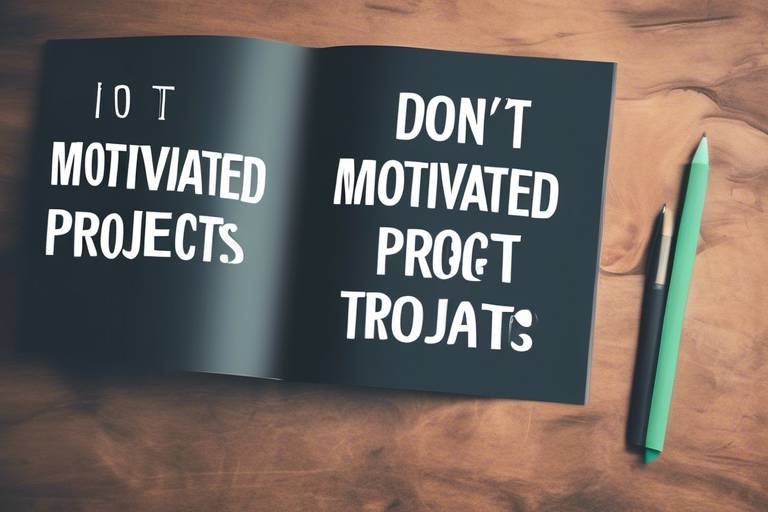Tips for Managing Your Time Effectively with Multiple Deadlines
Effective time management is crucial when juggling multiple deadlines. These tips will help you prioritize tasks, stay organized, and meet all your deadlines successfully.
When faced with a multitude of deadlines, setting clear priorities is key. By identifying the most urgent and important tasks, you can focus on what truly matters first. Whether you prefer creating a detailed list or utilizing a planner, ranking your deadlines based on their significance and time sensitivity will guide your workflow efficiently.
Breaking down tasks into smaller, manageable components is a smart strategy to tackle larger projects. This approach not only helps in allocating time for each task but also enables you to track progress effectively. By avoiding the feeling of being overwhelmed by the workload, you can maintain a sense of control and productivity.
Utilizing a digital calendar or scheduler can be a game-changer when managing multiple deadlines. By scheduling deadlines, meetings, and milestones, you can visualize your timeline and allocate sufficient time for each task. Setting reminders will keep you on track and ensure you stay ahead of your deadlines.
While multitasking may seem like a time-saving strategy, it can actually hinder productivity. Focusing on one task at a time is more effective in increasing efficiency and reducing errors. By concentrating on completing one task before moving on to the next, you can maintain a high quality of work and meet deadlines successfully.
Allocating buffer time for each task is a wise practice to prepare for unexpected delays or revisions. By setting aside extra time in your schedule, you can mitigate stress and handle any issues that may arise without compromising your deadlines. Building in buffer time ensures you have the flexibility to adapt to changing circumstances.
Delegation can be a valuable tool when managing multiple deadlines. If possible, consider assigning certain tasks to colleagues or team members. By delegating responsibilities, you can free up your time to focus on critical deadlines while ensuring all aspects of a project are addressed efficiently. Collaboration is key to meeting deadlines effectively.
Effective communication plays a significant role in managing deadlines successfully. Maintaining open lines of communication with supervisors, clients, or team members regarding deadlines and progress is essential. Clear communication helps manage expectations, address concerns, and ensures everyone is aligned towards the common goal of meeting deadlines.
Remember to take breaks and allow yourself time to rest amidst the hustle of meeting multiple deadlines. Avoiding burnout is crucial in maintaining focus and productivity. Short breaks can rejuvenate your mind and body, leading to improved creativity and overall time management in the long run.

Set Clear Priorities
Effective time management is crucial when juggling multiple deadlines. These tips will help you prioritize tasks, stay organized, and meet all your deadlines successfully.
Setting clear priorities is essential when facing multiple deadlines. By identifying the most urgent and important tasks, you can focus on what truly matters. Create a prioritized list or use a planner to rank your deadlines based on their significance and time sensitivity. This approach helps you tackle the most critical tasks first, ensuring you make progress efficiently.
Dividing larger projects into smaller, manageable tasks is a smart strategy to handle multiple deadlines effectively. Breaking down tasks allows you to allocate time for each component, track your progress, and avoid feeling overwhelmed by the workload. It's like assembling a puzzle; by focusing on individual pieces, you can eventually complete the whole picture.
Utilizing a digital calendar or planner is a practical way to stay organized and meet deadlines. By scheduling tasks, meetings, and milestones, you can visualize your workload and allocate sufficient time for each activity. Setting reminders will help you stay on track and ensure you don't overlook any important deadlines.
Focusing on one task at a time is key to managing your time effectively with multiple deadlines. Multitasking can lead to errors and decreased productivity. By concentrating on completing one task before moving on to the next, you can maintain quality work and progress efficiently.
Allocating buffer time for unexpected delays or revisions is a wise strategy when dealing with multiple deadlines. By setting aside extra time for each task, you can handle unforeseen circumstances without compromising your deadlines. Buffer time acts as a safety net, ensuring you have the flexibility to address any issues that may arise.
Delegating tasks to colleagues or team members can lighten your workload and enhance efficiency. By assigning certain responsibilities to others, you can focus on critical deadlines while ensuring all aspects of a project are addressed. Delegation is like building a strong team; each member plays a vital role in achieving success.
Effective communication is essential for managing multiple deadlines successfully. Maintaining open lines of communication with supervisors, clients, or team members regarding deadlines and progress is crucial. Clear communication helps manage expectations, address concerns, and ensure everyone is aligned towards meeting the deadlines.
Remember to allow yourself time for breaks and rest to recharge and maintain focus. Taking short breaks can prevent burnout, boost productivity, and foster creativity. Just like a well-deserved pause in a symphony, breaks are essential for maintaining a harmonious workflow and managing your time effectively in the long run.

Break Down Tasks
When facing multiple deadlines, the task of managing time effectively can seem daunting. One valuable strategy to tackle this challenge is to into smaller, more manageable components. By dividing larger projects into bite-sized pieces, you can approach each task with clarity and focus, making it easier to allocate time efficiently and track your progress effectively.

Use a Calendar or Scheduler
Managing multiple deadlines can be a daunting task, but with the right tools and strategies, it can be more manageable. One effective way to stay organized and on track is by using a calendar or scheduler. These tools can help you visualize your deadlines, meetings, and milestones, allowing you to plan your time effectively.
By utilizing a digital calendar or planner, you can input all your deadlines and set reminders to keep you on schedule. This way, you can allocate specific time slots for each task and ensure that you are dedicating enough time to meet each deadline successfully. Additionally, having a visual representation of your schedule can help you prioritize tasks and make adjustments as needed.
Moreover, a calendar or scheduler can also help you identify potential conflicts or overlapping deadlines. By seeing all your deadlines in one place, you can better plan ahead and avoid last-minute rushes to complete tasks. This proactive approach can reduce stress and improve your overall time management skills.
Incorporating a calendar or scheduler into your daily routine can provide structure and organization, allowing you to focus on one task at a time without feeling overwhelmed by the multitude of deadlines. Whether you prefer a digital calendar on your phone or a physical planner, finding a system that works for you is key to effectively managing your time and meeting all your deadlines.

Avoid Multitasking
Avoiding multitasking is a key strategy in effectively managing multiple deadlines. When you focus on one task at a time, you can dedicate your full attention and energy to completing it efficiently. This approach not only helps increase productivity but also reduces the likelihood of errors. Imagine trying to juggle multiple balls in the air; the more balls you add, the higher the chance of dropping one. By concentrating on one task before moving on to the next, you can maintain a high level of quality in your work.

Allocate Buffer Time
Effective time management is crucial when juggling multiple deadlines. These tips will help you prioritize tasks, stay organized, and meet all your deadlines successfully.
When managing multiple deadlines, it's essential to allocate buffer time for unexpected delays or revisions. By setting aside extra time for each task, you can ensure that you have a safety net in place to handle any unforeseen issues that may arise.
Think of buffer time as a cushion that protects you from the unexpected, much like how a safety net catches a performer in a circus act. It allows you to navigate through potential setbacks without compromising the quality or timeliness of your work.
By incorporating buffer time into your schedule, you can mitigate stress and anxiety related to tight deadlines. This extra time provides you with the flexibility to address any last-minute changes or challenges that may come your way.
Consider using a table to visually represent how you allocate buffer time for each task. This visual aid can help you see at a glance where you have built-in flexibility in your schedule and where adjustments may be necessary.
1. How can I determine how much buffer time to allocate for each task?
2. What should I do if I don't end up needing the buffer time I allocated?
3. Is it better to allocate buffer time at the beginning or end of a project timeline?

Delegate When Possible
When facing multiple deadlines, delegating tasks can be a game-changer in managing your time effectively. By entrusting certain responsibilities to colleagues or team members, you not only lighten your workload but also ensure that all aspects of a project are handled efficiently.
Delegating tasks allows you to focus on critical deadlines that require your expertise and attention. It can be a strategic move to maximize productivity and meet all deadlines successfully. However, it is essential to delegate tasks wisely, considering the strengths and capabilities of your team members.
Effective delegation involves clear communication and setting expectations. Clearly define the tasks, deadlines, and desired outcomes when assigning responsibilities. Providing necessary resources and support to the delegated team members is crucial for their success and the overall project completion.
Furthermore, delegation promotes collaboration and teamwork within the organization. It fosters a sense of shared responsibility and trust among team members, leading to improved efficiency and project outcomes. By leveraging the strengths of each team member through delegation, you can enhance overall productivity and achieve better results.

Practice Effective Communication
Effective time management is crucial when juggling multiple deadlines. These tips will help you prioritize tasks, stay organized, and meet all your deadlines successfully.
Effective communication is key to managing multiple deadlines successfully. By keeping open lines of communication with supervisors, clients, or team members, you can ensure that everyone is on the same page regarding deadlines and progress. Clear communication helps manage expectations, address concerns, and prevent misunderstandings that could lead to missed deadlines. By regularly updating stakeholders on your progress and any potential challenges, you can work together to find solutions and ensure all deadlines are met efficiently.
1. How can I prioritize tasks effectively when facing multiple deadlines?
2. Is it better to delegate tasks or try to manage everything on my own?
3. What should I do if unexpected issues arise that affect my deadlines?

Take Breaks and Rest
When it comes to managing multiple deadlines effectively, taking breaks and allowing yourself time to rest is often overlooked but crucial. Just like a car needs pit stops to keep running smoothly during a race, your mind and body also require breaks to recharge and maintain peak performance. Pushing yourself too hard without breaks can lead to burnout, decreased productivity, and increased stress levels.
Imagine your brain as a muscle that needs time to recover after intense exercise. By taking short breaks throughout the day, you give your brain the opportunity to relax and rejuvenate, enabling you to return to tasks with renewed focus and energy. These breaks can be as simple as taking a short walk, practicing deep breathing exercises, or enjoying a quick snack to refuel.
Incorporating breaks into your schedule not only prevents mental fatigue but also enhances creativity and problem-solving abilities. Stepping away from your work allows your brain to process information subconsciously, leading to fresh insights and innovative ideas when you return. Just like a well-oiled machine, your brain operates more efficiently when given the chance to rest and recharge.
Furthermore, breaks can help prevent decision fatigue, a phenomenon where the quality of your decisions declines after making numerous choices. By taking regular breaks, you give your brain a chance to reset, reducing the likelihood of making impulsive or poor decisions due to mental exhaustion. This practice ultimately contributes to better time management and overall task performance.
Frequently Asked Questions
- How can I effectively prioritize tasks with multiple deadlines?
To prioritize tasks effectively, start by identifying the most urgent and important deadlines. Create a list or use a planner to rank tasks based on their significance and time sensitivity. This way, you can focus on completing the most critical tasks first.
- Why is it important to break down tasks when managing multiple deadlines?
Breaking down tasks into smaller, manageable components helps in allocating time efficiently, tracking progress, and avoiding feeling overwhelmed. It allows for a more structured approach to handling complex projects with multiple deadlines.
- How can I avoid the pitfalls of multitasking while working on multiple deadlines?
Avoiding multitasking is crucial for maintaining productivity and quality of work. Focus on one task at a time to ensure better concentration and reduce errors. By completing tasks sequentially, you can enhance efficiency and overall performance.
- Why should I allocate buffer time for each task when managing multiple deadlines?
Allocating buffer time helps in accommodating unexpected delays or revisions that may arise during the project. By setting aside extra time for tasks, you can handle unforeseen issues without compromising the overall deadlines.
- When is it appropriate to delegate tasks to others in a project with multiple deadlines?
Delegating tasks to colleagues or team members is suitable when certain responsibilities can be shared to optimize efficiency. By distributing tasks effectively, you can focus on critical deadlines while ensuring all project aspects are addressed promptly.



















